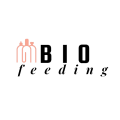Understanding the Challenge of Feeding During Illness
Managing a baby’s feeding during illness can be a complex task for any parent. Ensuring your baby receives the right nutrition and hydration is crucial, despite their reduced appetite or discomfort. But rest assured, with the right approach, this challenge can be overcome.
Feeding During Illness: Why it Becomes Difficult
Illness can cause certain changes in your baby’s body that may impact their feeding habits. This could be caused by a variety of factors such as:
- Reduced appetite: Illness can often cause a baby to lose their appetite, making feeding a difficult task. Here, the key is to encourage small, but frequent feedings.
- Mouth sores: Certain illnesses can cause soreness in the mouth, making feeding uncomfortable. Using specially designed baby bottles can make this easier.
- Difficulty swallowing: Sickness can cause enlarged glands, affecting the swallowing process. It’s important to monitor the baby’s behavior during feeding times.
Guidelines for Feeding Your Baby During Illness
Feeding during illness can be a struggle, but there are ways to ensure your baby remains well-nourished. Here are some critical baby care tips to consider:
- Stay Hydrated: Hydration is crucial during illness. Ensure your baby consumes enough liquids, ideally in the form of breast milk or formula. For elder infants, you can also include soups or broths.
- Use the right tools: Utilize top-quality baby bottles that are designed for ease of feeding. Our scientifically backed baby bottles could be an excellent choice.
- Monitor weight: Keep a close eye on your baby’s weight. Any severe weight loss should be immediately reported to the pediatrician.
Taking Expert Advice Into Consideration
Feeding during illness always requires a careful approach, which is why it’s crucial to follow expert advice. Guidance from health institutions like the Mayo Clinic and CDC are beneficial for parents. For example, the CDC provides comprehensive guidelines for feeding during illness in the context of COVID-19, which can be extrapolated to numerous situations.
Understanding the science behind baby bottle safety is also an essential aspect of disease management. Apart from these guidelines, it’s crucial to stay in touch with your pediatrician and follow their suggestions regarding your baby’s diet change during illness.
Applying Parenting Solutions in Time of Illness
In times of illness, your baby needs your care and comfort more than ever. Try to feed your baby in a calm, comfortable environment to make feeding easier. Plenty of rest and cuddles are also important to help your baby recuperate and build strength. Lastly, remember that every child is different, and what works for one might not work for another.
Dealing with Special Circumstances
One of the more difficult aspects of parenting is ensuring your baby is fed correctly during special circumstances, like illness. In these situations, understanding the science behind baby bottle safety can be a valuable asset. It can allow you to make informed decisions, ensuring your baby’s nutritional needs are met safely and efficiently.
The Importance of Adjusting the Diet
When it comes to feeding your baby during illness, it might be necessary to adjust their regular diet. To prevent any further health complications, it’s wise to include foods that are easy to digest. Also ensure the diet is rich in essential nutrients needed to fight off the illness, while avoiding any foods that might be hard for the body to process.
The Vital Role of Hydration
As a responsible parent, it’s crucial to understand the important role of hydration during illness. Not only does it help in maintaining body temperature, but also aids in flushing out toxins. Offering your baby small, regular sips of water, breastmilk or formula can prevent dehydration and give them the much-needed energy to fight off the illness.
The Impact of Illness on Infant Feeding Habits
Illness has a considerable impact on infant feeding habits. Unpleasant symptoms such as a high fever, cough, or cold can make your baby lose their appetite or feel uncomfortable while eating. Understanding these changes is fundamental in managing feeding during illness. Remember, just like adults, babies may not have a big appetite when they’re sick. As a parent, focusing on hydration and nutrient-rich foods will help your baby overcome this phase effectively.
The Challenge and Solution of Feeding during Chronic Illness
Certain chronic illnesses like diabetes can significantly influence feeding habits in infants. These situations demand advanced care, regular weight monitoring, and potentially special diets, tools, or techniques. Regular consultations with your pediatrician are crucial in managing your baby’s feeding habits effectively during such illnesses.
Recognising the Signs of Eating Disorders in Infants
Eating disorders are not common in infants, but they can occur. Infants with eating disorders may refuse to eat, vomit after meals, or be extremely fussy or selective about what they eat. If your baby manifests any of these symptoms, it is essential to consult with your pediatrician immediately. Early intervention is key for successful eating disorder treatment.
Understand, Adapt, Overcome
In conclusion, managing your baby’s feeding habits during illness is indeed a daunting task – but far from impossible. Whether it’s a temporary bout of sickness or a chronic condition, the key to success lies in understanding what your baby’s body needs during such times and adapting to the changes. Being aware of your baby’s normal feeding patterns, recognising changes, and seeking medical help when necessary, you can ensure your baby’s nutritional needs are adequately met.
Conclusion
By following the right approach, understanding the symptoms and showing patience, you can handle this challenge effectively. Remember, feeding patterns return to normal as the baby’s health improves. Stay dedicated to keeping the line of communication open with your pediatrician and cross these turbulent times with an educated stride.

